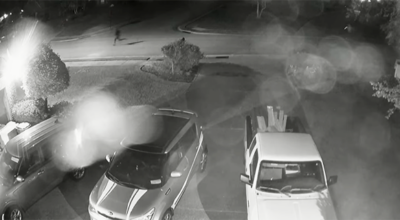Locked Down: Life inside Mississippi prison where inmates set each other on fire, gangs control power
Published 1:01 pm Monday, August 19, 2019
As of July 1, Parchman, the state’s most notorious prison, had one officer for every 11 inmates; Central Mississippi Correctional Facility, one officer for every 17 inmates; and SMCI, one for every 23 inmates.
The average officer in a federal prison is responsible for watching 9.3 inmates, according to the federal Bureau of Prisons. Among some neighboring states, the ratio is 6.6 inmates per officer in Arkansas; 5.2 to 1 in Louisiana; and 9.9 to 1 in Alabama.
MDOC declined to comment on the high inmate-to-guard ratios at the state’s prisons, but noted that in a fiscal 2018 report, the ratio was lower; one guard per 11 inmates,.
Lack of staff forces officers to stay on for overtime shifts, a problem highlighted nationally when accused sex trafficker Jeffrey Epstein killed himself in a federal jail in New York City this month. Two of the officers on duty that night were working overtime shifts, media organizations have reported.
At SMCI, when an officer’s first shift ends after 12 hours, prison officials often ask him or her to work a second 12-hour shift. At the end of the second shift, some are asked to work a third.
“Oh, my, that’s dangerous,” said former Washington state prisons director Eldon Vail.
Without proper rest, he said, officers can fall asleep when they are watching inmates, he said.
‘They’re Scared for Their Lives’
Kevin Schaal, a 63-year-old inmate serving time for sale of a controlled substance, drug possession and possession of a weapon, has spent much of his life behind bars.
He said gangs — he calls them “mobs” — run SMCI. When a prisoner arrives, the new inmate won’t sleep in the bed that officials assign to him. The gangs tell him where to sleep.
And when he arrives at that bed, he will probably see a wire frame with no mattress because they have already seized it for themselves, Schaal said. “I slept on steel for about two weeks.”
When a new inmate arrives at SMCI, gangs also take his picture with their cellphones, which aren’t allowed in prison but are widely used, Schaal said. Even if an inmate is transferred to a different part of the prison, his photo arrives ahead of him.
On April 8, state Rep. Jay Hughes toured SMCI. Turner, who is a member of the citizen advisory committee to the prison, joined him.
Hughes, a Democrat from Oxford traveling the state in his campaign for lieutenant governor, said one counselor told him she didn’t feel safe. He and Turner said a high-ranking prison official corrected her, saying: “It’s not that you didn’t feel safe. You aren’t safe.”










